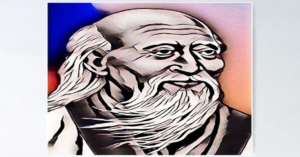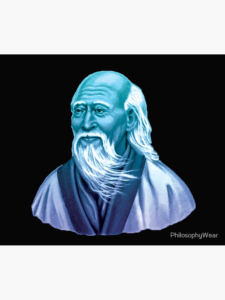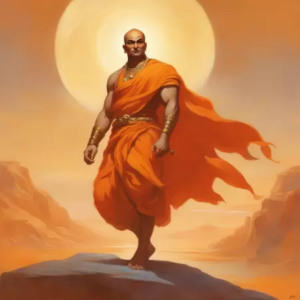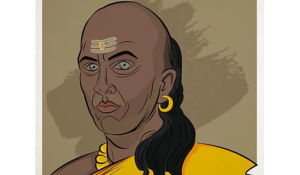The Unforced Life: How an Ancient Chinese Mystic Holds the Key to Modern Peace

You know that feeling. Your alarm jolts you awake, and before your eyes are even open, the mental checklist starts scrolling, Laozi : emails to answer, deadlines to meet, groceries to buy, notifications piling up like digital snow. You spend the day pushing, striving, and forcing your way through a world that seems to demand constant, visible effort. Your value feels tied to your productivity. Your peace is a distant country you visit only on vacation, if you’re lucky.
What if we have it all backwards?
What if the secret to a fulfilling life isn’t about adding more—more effort, more control, more hustle—but about subtracting? What if true power isn’t about standing rigid against the storm but about learning how to bend so you never break?
This isn’t a new self-help fad. It’s a 2,500-year-old whisper from the edges of history, from a man who might not have even existed. His name was Laozi (pronounced roughly “Lao-dzuh”), and his tiny book, the Tao Te Ching, is a radical guide to living in harmony with the deepest rhythms of existence. It’s not about doing more. It’s about being more by finally, mercifully, doing less.
The Mystery Man: Why Not Knowing is the First Lesson
Let’s start with the beautiful mystery of it all. “Laozi” isn’t really a name; it’s a title. It means “Old Master” or, even more wonderfully, “The Old Child”. The stories about him feel like parables themselves. He was said to be a lonely archivist in the royal Zhou dynasty library, watching the world outside grow increasingly complex, corrupt, and noisy. Tired of the chaos, he decided to leave civilization behind.
As he rode his ox toward the western mountains, a gatekeeper at the final pass stopped him. This guard, Yin Xi, sensed an immense wisdom in the old man and begged him not to disappear without leaving his knowledge behind. Moved by the request, Laozi sat down and in a single, timeless sitting, wrote a brief text of just 5,000 characters. He handed it over, then passed through the gate and vanished into the mist, never to be seen again.
That text was the Tao Te Ching.
Now, historians will tell you he probably wasn’t one man. He might have been a composite of many wise teachers, or a brilliant literary invention. But that debate misses the point entirely. The fact that we can’t pin him down is the first lesson. Laozi embodies the very idea he taught: that the most profound truths are often hidden, unnamed, and work not through loud force but through quiet, effortless influence. He is the mystery that points to a greater mystery. Chasing the historical facts about him is like trying to catch the wind in a box. You’ll miss the feeling of the breeze on your skin.
Laozi Unnameable Way: Feeling the Tao

So, what did he write in that mysterious text? It begins with a warning and a wink: “The Tao that can be spoken is not the eternal Tao.”
Right away, he tells us, “What I’m about to point to can’t be fully captured in words.” The Tao (pronounced “Dow”) is the core concept. The word itself means “The Way” or “The Path”. But it’s not a path you walk on. It’s the natural order of the universe itself. It’s the rhythm behind everything—the way seasons change, the way rivers flow to the sea, the way a seed knows to become a tree.
Trying to define the Tao is like trying to define “gravity.” You can’t see it, but you can see its effects in an apple falling from a tree. You can’t hold it, but you feel its constant pull.
- The Tao is the emptiness inside a cup that makes it useful.
- It’s the silence between musical notes that makes the melody.
- It’s the soft, yielding nature of water that, over time, can carve canyons out of solid rock.
Our modern minds are trained to analyze, label, and dissect. We see a forest and immediately think “timber,” “ecosystem,” or “hiking destination.” The Taoist approach is to simply experience the forest—to feel its quiet grandeur, to notice the interplay of light and shadow, to understand intuitively that you are not a visitor in it, but a part of it.
This is the shift: from thinking to feeling, from forcing to flowing.
Wu Wei: The Art of Effortless Action (This is NOT Being Lazy)
This leads us to Laozi’s most famous and most misunderstood idea: Wu Wei (pronounced “Woo-Way”). It’s often translated as “non-action,” which to our busy ears sounds an awful lot like laziness, apathy, or checking out.
Nothing could be further from the truth.
Wu Wei is not inaction. It is right action. It is action that is so perfectly in tune with the flow of the Tao that it becomes effortless, spontaneous, and incredibly effective. It’s the action of the natural world :
- A spider doesn’t stress about how to spin its web; it just spins it, perfectly, every time.
- A bird doesn’t force itself to fly; it spreads its wings and lets the air currents lift it.
- Your heart doesn’t strive to beat; it just does its job, effortlessly, every second of your life.
In our own lives, Wu Wei is that state of “flow” or being “in the zone” :
- The artist whose brush seems to move on its own.
- The writer whose words pour out without struggle.
- The parent who calmly diffuses a toddler’s tantrum not with threats, but with a hug and a change of scenery.
- The problem-solver who finds the answer the moment they stop grinding on the problem.
It’s the difference between a novice gardener yanking a weed (and breaking the root) and a master gardener who loosens the soil just so, allowing the weed to slide out whole. The result is the same, but the master did it with less effort, less damage, and a deeper understanding of the way things work.
Wu Wei is about working with the current, not against it. It’s the profound understanding that sometimes the most powerful thing you can do is to stop pushing.
Why the Bamboo is Stronger Than the Oak: The Power of Softness
Laozi loved paradoxes. He turned our everyday assumptions upside down to help us see a deeper truth. Our world worships the hard, the solid, the rigid: the steel skyscraper, the unyielding opinion, the tough-as-nails leader.
Laozi asks us to watch what happens in a storm. The mighty oak stands rigid and proud against the wind until, with a terrible crack, it snaps. Now, watch the bamboo. It bends low, yielding completely to the wind’s fury. When the storm passes, it springs back, unharmed and rooted more deeply than ever.
He champions the soft, the yielding, the receptive—the feminine principle, or Yin. He doesn’t reject the active, masculine Yang energy, but he begs for balance. In our Yang-obsessed world of constant doing and achieving, we’ve forgotten the incredible power of Yin: receiving, resting, nurturing, and allowing.
- The valley is low and humble, yet it’s what gives the mountain its height.
- The hollow of a cave is empty, yet it provides shelter and safety.
- Water is the softest substance, yet it is the most powerful force of erosion on the planet.
True strength, in Laozi’s view, isn’t about dominating others. It’s about the resilience to adapt, to yield, and to endure. The most powerful leader isn’t the one barking orders from the front, but the one who serves from behind, empowering others so much that they say, “We did it ourselves.”
Living the Tao Today: Practical Steps for the Modern Mind
So how do we apply 2,500-year-old wisdom in a world of apps, deadlines, and Zoom calls? Laozi doesn’t hand us step-by-step instructions, but he gives us principles that are timeless.
1. Slow Down to See the Flow
Even five minutes of mindfulness—observing your breath, noticing the sensations in your body, or simply listening to the ambient sounds around you—can reconnect you to the Tao. This is not a luxury; it’s a vital recalibration. Flow doesn’t appear when you rush; it appears when you pause.
2. Embrace Wu Wei in Small Actions
Next time you’re faced with a decision, experiment with Wu Wei. Instead of forcing the outcome, align yourself with the situation’s natural tendencies. Often, the easiest path is also the most effective.
3. Cultivate Softness in Your Relationships
Practice yielding before reacting. Listen more than you speak. Step into someone else’s perspective. Strength isn’t about winning arguments; it’s about creating harmony and resilience, like bamboo bending in the wind.
4. Less is More
Remove unnecessary clutter—digital, mental, and material. Being focused, centered, and present often brings more results than a frantic attempt to do everything at once. Simplicity reveals the path more clearly than complexity ever could.
Laozi Quiet Revolution Within
Following Laozi doesn’t require a complete lifestyle overhaul. It’s less about drastic change and more about subtle shifts. The revolution happens quietly inside, as we learn to notice rather than control, to yield rather than dominate, and to let the Tao guide our actions instead of our ego.
Modern life often feels like paddling upstream in a roaring river. Wu Wei invites you to feel the current, notice where it naturally carries you, and use its power rather than fighting it. This doesn’t make you passive—it makes you strategic, wise, and serene.
Laozi Unforced Life
Imagine waking up tomorrow with this mindset. You approach your work with calm attentiveness. You handle conflicts with gentle patience. You take care of yourself without guilt or obsession. You notice the subtle joys—the taste of your morning tea, the laugh of a child, the dance of sunlight across your floor. You act, but your actions flow. You live, but your life is unforced.
That is the promise of the Tao Te Ching. Not a rigid code, not a strict path, but a whisper: “Flow. Bend. Be. The world does not require your struggle to move; it requires your harmony to matter.”
2,500 years later, Laozi still speaks. And maybe, just maybe, it’s time we finally listened.



